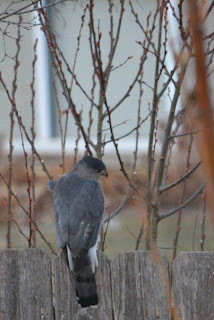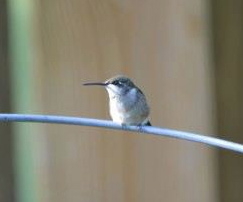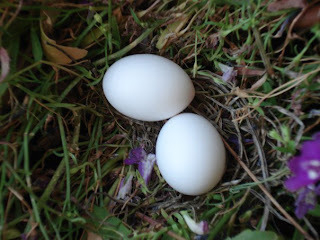Philosophy of Science
∞
The Sentiment That Invites Us To Pray - Peirce on Prayer and Inquiry
"One of Peirce’s ongoing aims was
to reconcile religious life with the practice and spirit of science.
Given the great differences between religion and science—in both
practical and theoretical terms—this may have seemed like a fool’s
errand in his time, and even more so in our time. The spirit of science
is one of progress and fallibility, an open community whose only heresy
is an unwillingness to seek the truth, while the spirit of religion
includes a tendency towards conservative closure of inquiry and of
membership. While Peirce acknowledged these distinctions, he
nevertheless maintained that religion was not necessarily
opposed to science. Certain aspects of religious practice —and
especially the act of prayer—exemplify elements of inquiry. Rather than
causing thought to contract and community to become less important, as
is often supposed, practice in prayer may be a creative act, like
poetry, that can in fact lead to greater understanding of the world and
of one’s place in it. At its best, prayer arises from an instinct or
from a sentiment, and it affords comfort, strength, and—perhaps most
importantly—insight into the nature of the world...."
Read the rest here, in the latest volume of the Journal Of Scriptural Reasoning.
Read the rest here, in the latest volume of the Journal Of Scriptural Reasoning.
∞
A number of times in the last few years I've read statements by prominent scientists about the irrelevance of philosophy, echoing Richard Feynman's famous quip that "Philosophy of science is about as useful to scientists as ornithology is to birds."
Feynman was just talking about philosophers of science, which is just one narrow slice of the philosophic pie. More recently others, like Freeman Dyson, have made broader indictments of philosophy, or like Lawrence Krauss, of the humanities generally.
Dyson, in an article he wrote for the New York Review of Books, described today's philosophers as "a sorry bunch of dwarfs. They are thinking deep thoughts and giving scholarly lectures to academic audiences, but hardly anybody in the world outside is listening. They are historically insignificant." Yes, we have a technical vocabulary that outsiders often have trouble understanding. But that's true of every discipline. And yes, we don't seem to have anyone in our discipline who is writing the next Job or Republic right now, but that's been true almost always. No discipline consistently produces nothing but geniuses. Many of us in every discipline live our careers out bearing the gifts of the past forward to another generation so that they might benefit from them and add to them. And many of us are content to be forgotten as long as the books of wisdom entrusted to us are remembered.
In his recent book A Universe From Nothing, Krauss seems to be at pains to point out that without the sciences, the humanities are virtually useless, and that even with the sciences, the humanities are still virtually useless. His introduction pushes the humanities back at arm's length and invites them to clear out while science handles all the real heavy lifting.
What stands out for me as I read these scientists and some others writing in a similar vein is that they write like they're on the defensive and feeling embattled. My guess is that they see themselves or their disciplines as being engaged in an important fight about cultural values, science education, and research funding. The outsized reaction to Thomas Nagel's recent Mind and Cosmos - with its inflammatory subtitle, "Why The Materialist Neo-Darwinian Conception of Nature Is Almost Certainly False" - suggests that many advocates of the sciences worry about any book that might give comfort to the enemy.
A siege mentality can make us distrustful of everyone, and especially of our critics, no matter how friendly. Dyson, Krauss, and others inclined to sideline the humanities would do well to remember that the humanities give them the tools with which to reason and write about the discoveries of science. If those of us in the humanities seem critical of the sciences, this doesn't mean we're unfriendly. The funny thing about Feynman's dictum is that as long as birds and people try to live together, birds actually do benefit from ornithologists. After all, ornithologists study the birds and their environments, and work to ensure that others see how important it is to preserve them. Of course, the birds in their daily lives will likely never know it.
I should add that philosophers like me benefit from ornithologists, too. I am especially grateful for the ornithologists at Cornell University for putting so much helpful information on their website for bird-watchers and ornithophiles like me.
The bird I have identified as a Cooper's hawk might be a sharp-shinned hawk; I often have trouble distinguishing them. We live on the migration path for ruby-throated hummingbirds, so we see them for two brief seasons, once in the spring and again in the fall. Mourning doves are notoriously poor parents, and we often find they've laid eggs in silly places. Fortunately for their species, they can produce multiple clutches each year.
If you're interested in both birds and philosophy, let me recommend Charles Hartshorne's book Why Birds Sing. Hartshorne suggests that maybe birds sing because they enjoy it. This may seem so obvious as to be silly, but it is a helpful addition to the usual claims that birds sing because singing is useful for mating, staking territorial claims, self-defense, and so on. Hartshorne doesn't allow us to reduce birds to bird-making machines. Which is helpful, because it's a reminder that we, too, are more than human-making machines. It's also good to be reminded that it's okay to sing for the sheer enjoyment of singing.
Do Birds Need Ornithologists?
 |
| Cooper's hawk in my backyard. |
Feynman was just talking about philosophers of science, which is just one narrow slice of the philosophic pie. More recently others, like Freeman Dyson, have made broader indictments of philosophy, or like Lawrence Krauss, of the humanities generally.
Dyson, in an article he wrote for the New York Review of Books, described today's philosophers as "a sorry bunch of dwarfs. They are thinking deep thoughts and giving scholarly lectures to academic audiences, but hardly anybody in the world outside is listening. They are historically insignificant." Yes, we have a technical vocabulary that outsiders often have trouble understanding. But that's true of every discipline. And yes, we don't seem to have anyone in our discipline who is writing the next Job or Republic right now, but that's been true almost always. No discipline consistently produces nothing but geniuses. Many of us in every discipline live our careers out bearing the gifts of the past forward to another generation so that they might benefit from them and add to them. And many of us are content to be forgotten as long as the books of wisdom entrusted to us are remembered.
 |
| Female ruby-throated hummingbird. |
In his recent book A Universe From Nothing, Krauss seems to be at pains to point out that without the sciences, the humanities are virtually useless, and that even with the sciences, the humanities are still virtually useless. His introduction pushes the humanities back at arm's length and invites them to clear out while science handles all the real heavy lifting.
What stands out for me as I read these scientists and some others writing in a similar vein is that they write like they're on the defensive and feeling embattled. My guess is that they see themselves or their disciplines as being engaged in an important fight about cultural values, science education, and research funding. The outsized reaction to Thomas Nagel's recent Mind and Cosmos - with its inflammatory subtitle, "Why The Materialist Neo-Darwinian Conception of Nature Is Almost Certainly False" - suggests that many advocates of the sciences worry about any book that might give comfort to the enemy.
 |
| Mourning dove eggs in one of my flower pots. |
******
I should add that philosophers like me benefit from ornithologists, too. I am especially grateful for the ornithologists at Cornell University for putting so much helpful information on their website for bird-watchers and ornithophiles like me.
The bird I have identified as a Cooper's hawk might be a sharp-shinned hawk; I often have trouble distinguishing them. We live on the migration path for ruby-throated hummingbirds, so we see them for two brief seasons, once in the spring and again in the fall. Mourning doves are notoriously poor parents, and we often find they've laid eggs in silly places. Fortunately for their species, they can produce multiple clutches each year.
If you're interested in both birds and philosophy, let me recommend Charles Hartshorne's book Why Birds Sing. Hartshorne suggests that maybe birds sing because they enjoy it. This may seem so obvious as to be silly, but it is a helpful addition to the usual claims that birds sing because singing is useful for mating, staking territorial claims, self-defense, and so on. Hartshorne doesn't allow us to reduce birds to bird-making machines. Which is helpful, because it's a reminder that we, too, are more than human-making machines. It's also good to be reminded that it's okay to sing for the sheer enjoyment of singing.
∞
The Course Of Nature and Laws of Nature
As part of the sabbatical leave I am currently enjoying I am spending a lot of time reading ancient and medieval texts, mostly on science and mathematics. The plan is to incorporate them into my ancient and medieval philosophy class next fall. I teach that class more as a history of texts than as a class on philosophical problems. The historical development of astronomy is one of the main threads we follow, tying it to discoveries in geometry, optics, metaphysics, ethics, epistemology, and politics.
Today I was reading this text from Book I of Manilius' Astronomica. I'll translate the relevant part below.
On the one hand, this sounds like an early articulation of the idea of laws of nature. If nature follows paths laid down by nature itself and from which it does not deviate, that would be compatible with our idea of a natural law.
Yet there's an important difference between law and path. As you walk along a path, your feet may fall more to one side of the path or the other; and over time, paths may shift, broadening with use or narrowing with desuetude. Charles Peirce, responding to advocates of Hume's argument against miracles, argues that nature is like this as well, and that what we now call laws were once called the course of nature, and Peirce thinks of them as habits that nature has taken on.
The name makes a difference, if only a slight one. Peirce was not trying to argue for particular miracles, but he was urging students of science not to insist that nature behave according to their preconceptions of law. Manilius' idea is not so far-fetched: the laws might not have been there at all, but nature took them on and then, once they became habits, nature has stuck to them. Thinking about science this way alerts us to two possibilities: first, that things might not always have been as they are, and second, that nature might still be taking on new habits. We shouldn't expect nature to stray far from its habitual paths, but on the other hand, what would prevent it from doing so?
Today I was reading this text from Book I of Manilius' Astronomica. I'll translate the relevant part below.
The boldface text could be (loosely) translated like this: "Nature follows paths that she herself has made, and she does not stray as the inexperienced do."Nam neque fortuitos ortus surgentibus astrisnec totiens possum nascentem credere mundumsolisve assiduous partus et fata diurna,cum facies eadem signis per saecula constet,idem Phoebus eat caeli de partibus isdemlunaque per totidem luces mutetur et orbeset natura vias servet, quas fecerat ipsa,nec tirocinio peccet, circumque feraturaeterna cum luce dies, qui tempora monstratnunc his nunc illis eadem regionibus orbis,semper et ulterior vadentibus ortus ad ortumoccasumve obitus, caelum et cum sole perennet.
On the one hand, this sounds like an early articulation of the idea of laws of nature. If nature follows paths laid down by nature itself and from which it does not deviate, that would be compatible with our idea of a natural law.
Yet there's an important difference between law and path. As you walk along a path, your feet may fall more to one side of the path or the other; and over time, paths may shift, broadening with use or narrowing with desuetude. Charles Peirce, responding to advocates of Hume's argument against miracles, argues that nature is like this as well, and that what we now call laws were once called the course of nature, and Peirce thinks of them as habits that nature has taken on.
The name makes a difference, if only a slight one. Peirce was not trying to argue for particular miracles, but he was urging students of science not to insist that nature behave according to their preconceptions of law. Manilius' idea is not so far-fetched: the laws might not have been there at all, but nature took them on and then, once they became habits, nature has stuck to them. Thinking about science this way alerts us to two possibilities: first, that things might not always have been as they are, and second, that nature might still be taking on new habits. We shouldn't expect nature to stray far from its habitual paths, but on the other hand, what would prevent it from doing so?
∞
Wittgenstein, contra Hawking
Stephen Hawking recently said that philosophy is "dead" because it simply hasn't kept up with science in recent years. Hawking is not the first to make this sort of charge. A number of people have written replies to Hawking's charge, and I won't cover that ground again. Instead, let me simply offer a reply from Wittgenstein:
“Philosophy has made no progress? If somebody scratches where it itches, does that count as progress? If not, does that mean it wasn’t an authentic scratch? Not an authentic itch? Couldn’t this response to the stimulus go on for a long time until a remedy for itching is found?”
“Philosophy has made no progress? If somebody scratches where it itches, does that count as progress? If not, does that mean it wasn’t an authentic scratch? Not an authentic itch? Couldn’t this response to the stimulus go on for a long time until a remedy for itching is found?”